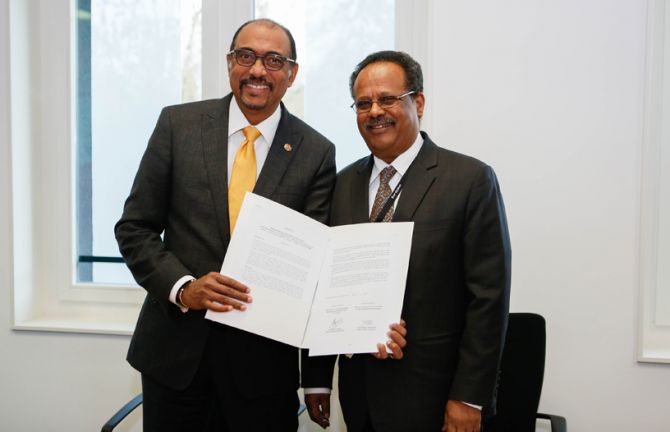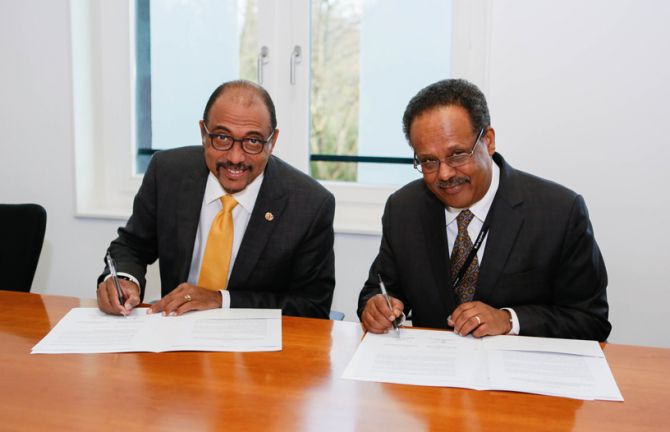


Press Release
UNAIDS and IPPF join efforts to Fast-Track the response to HIV
10 December 2015 10 December 2015Geneva, 11 December 2015—UNAIDS and the International Planned Parenthood Federation (IPPF) have signed a memorandum of understanding to Fast-Track access to HIV services by 2020. Under the partnership, UNAIDS and IPPF will support the delivery of high-impact HIV advocacy, prevention and treatment services, particularly in sub-Saharan Africa.
The partnership will boost collaboration in four specific areas: integrating HIV and sexual and reproductive health services and ensuring that people can realize their sexual and reproductive rights; stopping new HIV infections among children and keeping mothers alive; expanding HIV services for young people; and ensuring key populations—gay men and other men who have sex with men, transgender people, sex workers and people who inject drugs—are reached with life-saving HIV prevention, treatment, care and support. In each of these areas UNAIDS and IPPF will work jointly to ensure that there is prompt and concrete joint action on the ground.
“This partnership is about turning targets to results so that no one is left behind,” said Michel Sidibé, Executive Director of UNAIDS. “Many young people, women and key populations are still out of reach and in need of access to sexual and reproductive health and HIV services.”
UNAIDS and IPPF will aim to ensure that young people have the knowledge, agency and means to protect themselves from HIV and that all women have access to sexual and reproductive health and rights, including HIV, services. Ensuring that all people live in equality and dignity, free from discrimination and violence, will also be a goal. Progress on the objectives of the partnership will be reviewed annually.
“We are delighted that we are entering this partnership with UNAIDS,” said IPPF’s Director-General, Tewodros Melesse. “It isn’t about making a difference in London or Geneva. It’s about making a real difference on the ground, so we are able to work together to provide more integrated HIV prevention, testing and treatment services, especially for the most marginalized and underserved in society.”
The partnership will advance the UNAIDS Fast-Track Strategy to end the AIDS epidemic as a public health threat by 2030. To do this will require front-loading investments over the next five years, reaching the UNAIDS 90–90–90 treatment target, expanding access to HIV prevention and ensuring zero discrimination.
The memorandum of understanding was signed at UNAIDS headquarters in Geneva during an event on the rights, roles and responsibilities of men in Fast-Tracking the end of AIDS, organized by UNAIDS, IPPF and Sonke Gender Justice.
UNAIDS
The Joint United Nations Programme on HIV/AIDS (UNAIDS) leads and inspires the world to achieve its shared vision of zero new HIV infections, zero discrimination and zero AIDS-related deaths. UNAIDS unites the efforts of 11 UN organizations—UNHCR, UNICEF, WFP, UNDP, UNFPA, UNODC, UN Women, ILO, UNESCO, WHO and the World Bank—and works closely with global and national partners to end the AIDS epidemic by 2030 as part of the Sustainable Development Goals. Learn more at unaids.org and connect with us on Facebook, Twitter and Instagram.
IPPF
International Planned Parenthood Federation (IPPF) is the world’s largest sexual and reproductive health and rights provider. Since 1958, IPPF has served the poorest and most vulnerable, delivering health services that empower women and girls, including 149.3 million services to 61.8 million people in 2014.
Press centre
Download the printable version (PDF)
